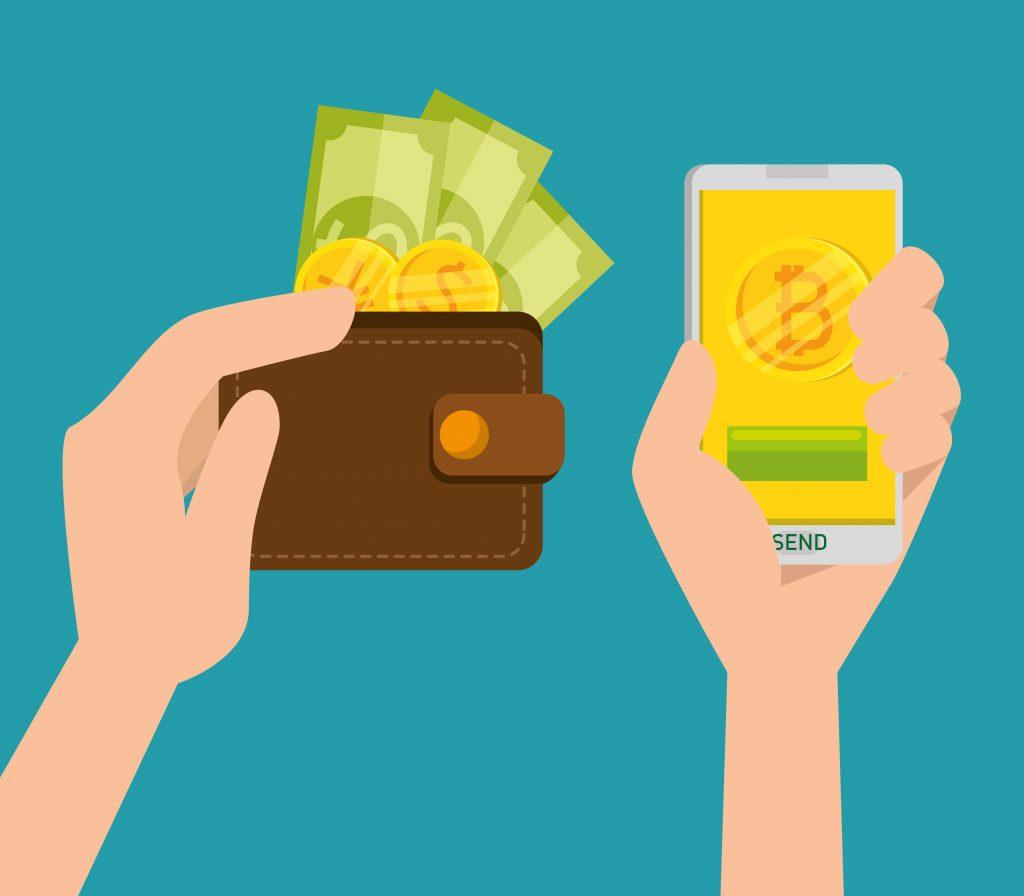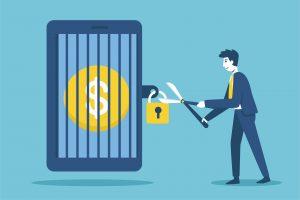It is rightly said that ‘bitcoin is not a currency for the government, it is a global currency for the people.’ To possess cryptocurrency, you’ll need to create a cryptocurrency wallet before deciding which currencies to invest in. This is where you’ll keep track of your cryptocurrency holdings.
Each wallet has a private key that only you may use to access the wallet’s contents. But creating a wallet is more than storing any Bitcoin or Ethereum you purchase on an exchange. It also allows you to transmit and safely receive cryptocurrency.
What Is a Crypto Wallet?
An individual’s public and private keys are stored in a Crypto Wallet, providing a simple interface for managing crypto assets. They also facilitate bitcoin transactions over the blockchain. Many wallets let individuals connect with distributed systems or purchase and trade crypto assets.
It is critical to realize that crypto exchanges do not involve sending crypto tokens from your smartphone to another person’s smartphone. When you transmit tokens, you sign the transaction with your private key and broadcast it to the blockchain network. The system will then add your transaction to reflect the new balance in your and the recipient’s addresses.
As a result, the word “wallet” is a bit misleading because crypto wallets do not store bitcoin in the same manner as conventional wallets do. Instead, the crypto wallet scans the shared blockchain to display the balances in your accounts and the private keys that allow you to conduct transactions. Listed below are the types of crypto wallets.
Hosted wallets
Hosted wallets are famous because they are straightforward and easy to set up. Because these wallets are “hosted” straightforwardly on the exchange where you purchase your cryptocurrency, they are frequently referred to as “exchange wallets.” You’ve already utilized a hosted wallet if you’ve ever purchased bitcoin on an exchanger like Coinbase or Kraken and stored it on the exchange.
Non-custodial wallets
A non-custodial wallet gives you total control over your cryptocurrency with no interaction from a third party. In general, these software wallets provide greater freedom and functionality than hosted wallets. For instance, if you wish to acquire NFTs or stake crypto (a procedure in which your crypto helps a blockchain network and gets incentives for doing so), you should use a non-custodial wallet.
Hardware wallets
Hardware wallets are actual technologies, often known as “cold wallets” or “cold storage wallets.” They have the appearance of a USB stick. This gadget stores your private key for retrieving your bitcoin on a blockchain. Many believe a hardware wallet to be the safest option to keep bitcoin since it is not linked to the internet and exists in physical form. Without this gadget, a hacker halfway around the world cannot access your crypto.
How Does A Cryptocurrency Wallet Work?
Blockchain is a distributed ledger that stores information in “blocks.” These are archives of all transactions, the balances kept at each location, and who has access to those funds. Cryptocurrency is not kept “in” a wallet per se. The currencies reside on a blockchain, and the wallet program enables you to communicate with the cryptographic balances. The wallet holds addresses and lets its owners transfer coins to other locations while allowing others to see the amount stored at any particular address.
Most crypto wallets enable users to transmit, receive, and store cryptocurrency. Some contain a function that allows you to buy and spend cryptocurrency. Specific crypto wallets provide extra functionality such as token exchanging, staking tokens for a defined return handed out to users, and access to dApps (decentralized apps) established on multiple networks. While each wallet has its quirks, the following are the typical actions required in sending or receiving payments using a crypto wallet:
- You must obtain the crypto wallet address (also referred to as a public key) from your wallet to accept funds. Locate the “create address” button in your wallet, then click it. Take the alphanumeric identifier or QR code and communicate it with the individual who wants to give you cryptocurrency.
- You will need the recipient’s wallet address to send money. Locate the “send” option in your wallet and input the address of the wallet to which you want to transfer coins.
- Choose the amount of cryptocurrency you want to transfer and click “confirm.”
- Before transferring significant sums of cryptocurrency, consider making a tiny test transaction. You should note that transmitting bitcoin necessitates a fee paid to miners in return for executing the transaction.
Importance Of Cryptocurrency Wallet

There are several advantages to holding your cryptocurrency in a wallet. One of the primary advantages is that you can protect them from hackers and thieves who may try to steal your coins or install malware on your system. Another advantage is that it allows you to control how much authority or influence another individual has over your wealth.
Pros And Cons Of Cryptocurrency Wallets
Listed below are the pros and cons that come with cryptocurrency wallets.
Pros
- Money self-ownership
- Censorship-resistant transactions
- Simple and quick accessibility
Cons
- User accountability
- The learning curve
- Possibility of making mistakes
Is Crypto Wallet Safe?
The security of a cryptocurrency wallet app is determined by how the user controls them. The most severe threat to cryptocurrency safety is the individual user’s loss of the private key. Digital wallets are the simplest to set up and use but are also among the most vulnerable to cyber-attacks.
When it comes to crypto, one should research to find out what works out well for them. Therefore, take a look at types of crypto wallets which have their pros and cons. Every wallet will have different features that you may or may not be interested in.
The primary issue with a cold wallet is that if you have not yet backed up the data on it or kept a paper duplicate of it somewhere safe – and you misplace that device – you forfeit your digital assets forever. Simply stated, you no longer know where your bitcoin is on a blockchain or possess the keys to prove you own it.
Hot storage wallets, on the other hand, have the advantage of service provider assistance. If you forget your wallet access token, there are challenge-and-answer queries that will enable you to retrieve it.
In contrast, there are just a few ways for retrieving private keys from a lost cold storage wallet, and they are often difficult to use. For instance, Coinbase provides a restoration method consisting of 24 random word recovery phrases that customers must record while creating their wallet.
Blockchain ledgers operate on a trustless consensus method, which means you don’t have to know the person or persons with whom you’re dealing on the ledger. A distributed ledger will accept any transaction that has been properly signed with a valid secret key. That is why it is critical to safeguard keys. Wallets serve the role of securely holding those keys and performing the digital signature required for the distributed ledger to approve the transaction.
Do I Need A Crypto Wallet?
You don’t have to store your cash in cold storage or install a hot wallet application on your computer. Several cryptocurrency exchanges enable you to keep your bitcoin in an exchange wallet; perhaps some users leave it at that. However, is it acceptable to retain your cryptocurrency in the blockchain wallet provided by an exchanger like Coinbase and Kraken?
Purists of cryptocurrency will say no. However, there is a period of adjustment with crypto wallet app, which is acceptable until you have a firm grasp of public and private keys, warm and cold storage, and other crypto security subjects. It’s OK to leave your money in a coinbase wallet, Gemini, or anything else until you understand everything else.
Is Crypto Wallet Real Money?
Cryptocurrency is a virtual payment mechanism that does not rely on banks for transaction verification. It’s a peer-to-peer system of payment that enables anybody, anywhere, to send and receive funds. Cryptocurrency transactions exist solely as digital records to an online database identifying specific transactions rather than as real money carried around and spent in the real world. Transactions involving bitcoin funds are stored in a public ledger. Digital wallets are where cryptocurrency is kept.
A blockchain wallet is a type of cryptocurrency wallet that enables visitors to handle several types of cryptocurrencies, such as Bitcoin or Ethereum. A blockchain wallet facilitates the exchange of funds. Because transactions are cryptographically verified, they are safe. The wallet is available through online devices, especially mobile devices, and the person’s privacy and identification are protected. As a result, a blockchain wallet has all of the characteristics required for safe and secure financial transfers and transactions between multiple parties.
Conclusion
Cryptocurrencies such as Bitcoin and Ethereum are gaining popularity owing to their numerous advantages over traditional fiat currency. You’ll need to grasp how blockchain wallets function if you wish to use any of these blockchain-based coins. The page defines blockchain wallets, discusses why you may want to use one, and describes the many types of blockchain wallets.
The response to the question “what is a crypto wallet used for?” is that it’s similar to a cryptocurrency bank account that only you can access. Software wallets are designed for ease of use, whereas hardware wallets are designed for security. To begin, you should investigate which wallet types are appropriate for you.






